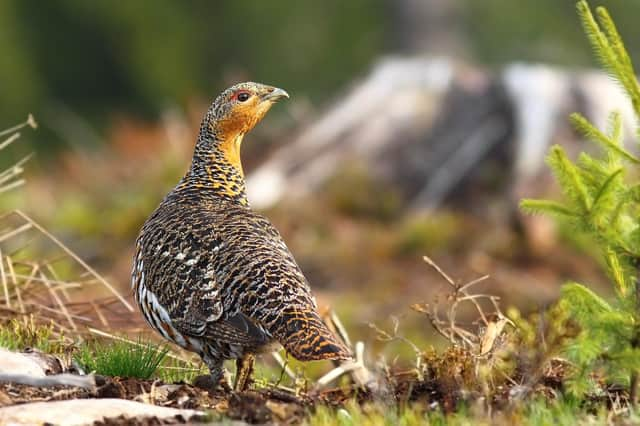Scottish Wildlife Management and Muirburn Bill: New report calls for end to certain predator control measures on grouse moors


A new report commissioned by an animal welfare charity has urged ministers to bring in a full ban on methods of predator control, including snares, on Scotland’s moors.
The Oxford Centre for Animal Ethics report, titled “Killing to Kill”, looks at how snaring, trapping and poisoning “causes suffering, or prolongs suffering, or makes animals liable to suffering.”
Advertisement
Hide AdAdvertisement
Hide AdThe study comes as MSPs are due to examine details of the Wildlife Management and Muirburn Bill after it passed its first parliamentary stage last Thursday.


The Bill aims to address raptor persecution and ensure that the management of grouse moors and related activities are undertaken in an environmentally sustainable and welfare conscious manner.
Rural groups have said the proposals could damage their businesses and the wider rural economy. Members of the Rural Affairs & Islands Committee, the lead committee responsible for scrutiny of the Bill, have previously called for more clarity on how some provisions of the proposals would work in practice, including concern about who is able to suspend a shooting licence, and the policing of wildlife incidents.
Animal welfare campaigners, however, are calling for policy to be more robust.
The report, commissioned by League Against Cruel Sports, estimated as many as 260,000 animals are killed each year in Scotland as part of legal “predator control” measures.
Authors condemned snares, and said the DOC (Department of Conservation) trap, which is said to be the most humane, only kills 80 per cent of what it intends to catch quickly, while the remaining 20 per cent are left to suffer injuries, with no requirement for inspection. They also spoke about how poisons result in animals suffering for days.
The report said: "Trapping, including snares, and poisoning are inherently inhumane and cannot in almost all cases be divorced from prolonged suffering. All current methods of ‘predator control’ either cause suffering, or prolong suffering, or make animals liable to suffering. There is no moral alternative to making all these practices illegal.”
Robbie Marsland, director of LACS, said: “We hope the report will open the eyes of politicians considering the Wildlife Management and Muirburn (Scotland) Bill to the enormous ethical issues before them.”
Advertisement
Hide AdAdvertisement
Hide AdThe bill passed its first stage by 82 votes to 32 on Thursday with no abstentions.
Speaking in the debate on Thursday environment minister Gillian Martin said the new licensing scheme would target wrongdoers who give grouse moors "a bad name".
She said: "Grouse moors can be successfully managed in a way that doesn't negatively impact on the environment or biodiversity, and a great many of them are acting responsibly.
"But we need to end the blight of raptor persecution that takes place on the few estates that give the sector a bad name."
She said the licensing scheme aimed to change the culture of grouse moor management while allowing law-abiding moors to continue.
Comments
Want to join the conversation? Please or to comment on this article.